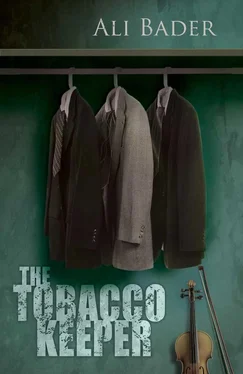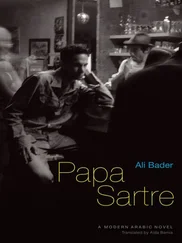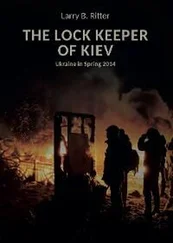The president stood at the centre, a huge bookcase behind him. A large chandelier hung from the high ceiling. There were luxurious sets of upholstered and high-backed chairs. Special guards without berets stood around. Thick, black moustaches covered the mouths of the guests. Venturi stood in the middle of a large circle of architects that included the Spaniard Ricardo Bofill and Jean Pondo, and behind him was a group of Iraqi architects and painters as well as Kamal Medhat in his black suit and bow tie. The model for Venturi’s mosque was on display in front of the president.
It had a high, decorative dome that was borrowed from classical Islamic architecture and a pastiche of Orientalist images taken from Hollywood movies and novels about Baghdad. The dome looked like a huge tree standing in a courtyard. It was bright and airy, providing shade to the prayer area and the worshippers beneath. The new mosque was a colossal structure that looked like a casino. It paid tribute to popular taste while downplaying the stark solemnity of the traditional mosque. Entry into the mosque was meant to be as joyous as stepping into a restaurant or a nightclub.
After the end of the Iraq — Iran war, Kamal Medhat wrote many letters to Farida. Life in Baghdad, he told her, was not only quiet but almost dead. He believed that tranquillity in the Middle East was a most dangerous sign. As soon as the country enjoyed a degree of prosperity, the situation would explode once again. He also told her of other family news: in summary, Nadia’s illness, Widad’s emigration, Janet’s murder and Amjad Mustafa’s alcoholism and addiction. Kamal never stopped giving concerts or accepting invitations. But he felt that the post-war years were a time of uncertainty and apprehension. The lifeline of the regime in Baghdad was action and initiative. It couldn’t wait behind the scenes for long. Kamal Medhat felt certain that the regime would have to resort to violence sooner or later as the ultimate way out, for it couldn’t tolerate stagnation. It feared and dreaded inaction. He was sure that the country was suffering from a psychological disorder after all the revolutions, wars, cruelty and violence. A deadly despair had taken hold of people. The people had become a single mass and the class system had collapsed completely. No real distinctions existed, for all were in the same boat. People were united by fear, poverty and humiliation. Kamal Medhat no longer had faith in the existence of rational judgement. The Middle East was a simmering pot of anger, cruelty and hate. Its politics were based on chauvinism and prejudice. Society was dominated by degenerate values that didn’t differentiate between political and gangster ethics. The citizens of the country had finally become the mob.
Everyone was leaving the country or trying to escape. Nadia stood on crutches in front of him, wearing her blue dressing gown. Her face looked withered and sick and her lips trembled. ‘Omar can’t stay here,’ she told him, ‘I don’t want him to see the atrocities of war. I’ll send him to my sister in Egypt.’
Just one day after this conversation between Kamal and Nadia, he bade goodbye to his son, and went back home. He sat in a chair near the window, enjoying once again the sight of trees and flowers. He thought of the fates of his three sons: Meir in the States, Omar in Cairo and Hussein in Tehran.
He trembled to think of their destinies. He shivered to think of a country that held so many closely guarded secrets. A new obsession loomed in the air, a new romanticized notion to blow away minds and thoughts. A deep sense of defeat and malice predominated. Political confrontations abounded, guided only by the unquestioning glorification of nihilism, rebellion and irrationality. The regime exalted the mysterious powers of instincts and blood. Saddam Hussein himself was part of the legacy of nihilism. He was moved by the spirit of the rabble and by malicious, vengeful calculations. His madness came into its own only through the creation of permanent, eternal enemies: first the communists, then the Iranians and then the West. Iraq’s existence was defined by the existence of the enemies around it. The country therefore became a marching army that kept moving forward, but heading nowhere in particular, a force avalanching blindly and inevitably towards destruction. Pushed by the West, it rolled with insane speed. It went from one battle to another and from one invasion to the next, to establish the empire of malice and the republic of the mob. The country was in a state of disorder, insanity, limitless violence and unstoppable actions.
The dominant romantic idea was that Iraq acquired its identity from its tragic fate as a country located at the extreme edge of the map, on the one hand, and as a country deprived of access to the sea, on the other. According to nationalist notions, Iraq the saviour was itself Iraq the victim. Iraq was, in fact, being punished for its heroic, prophetic role, for it was a nation with a prophetic mission existing outside human calculations and values. Saddam would come out in his khaki suit, screaming out loud that poor Iraq was surrounded by enemies. Iraq was like Joseph among his brothers. But poor Joseph, who submitted and eventually won the hearts of his father, mother and brothers, was very different from Iraq, which lashed out with all its might.
Kamal woke up in the morning panting with fear, his heart beating like a drum. The radio announced that the Iraqi army had marched into Kuwait and annexed it. He looked at Nadia sleeping in bed, her pulse growing weaker. Medicine bottles, pills, sedatives and a glass of water were placed on the table beside her and her young maid, Fawzeya, sat nearby. International forces had blocked all the routes to Iraq. In a matter of hours, the shops were emptied of goods and closed. The cats began to eat grass when they couldn’t find the remains of food in rubbish dumps or homes. The carcasses of starved animals filled the streets.
What was happening to the country?
It was as unbelievable as it was unbearable. Kamal felt a kind of lethal despair and apathy, for he could do nothing except read the papers and listen to the radio carrying political statements.
Years later, he wrote to Farida: ‘Those were the worst days of my life. The street was at a boiling point and everybody looked thoroughly miserable. The horizon foretold nothing but an enormous explosion. Everything happened extremely fast. Saddam held on to Kuwait and the Allied fighter planes came to bomb Baghdad and destroy it completely. They didn’t leave a bridge, a street, a factory or a palace standing intact. Even the viaducts leading from one village to another were all bombed. In a matter of days, Baghdad became just a village. People transported water by donkey as they did in the past. Primitive instincts bared their teeth and life lost its taste. My sole ambition was to die in peace.’
The little he knew about life outside came from the badly narrated reports of Fawzeya. She often told him things that made him laugh out loud at her inability to fully understand what was going on. Fawzeya had appeared in his life two years earlier, when she was brought to the house by one of Nadia’s relatives. She was a beautiful girl with a clear, dark complexion, beautiful large eyes and a fringe of hair neatly styled on her forehead. The day she arrived, she stood holding a bundle of clothes and looking wary and anxious. She wore a green shirt with black buttons whose sleeves were rolled up, revealing her lovely wrists, a tatty pair of trousers and a pair of blue socks. Her shoes were badly polished.
Kamal found Fawzeya stunning. He was astounded by her soft, clear skin and the sparkle of her eyes. He loved the vitality of the bright face, the timid curl of the lips, the high eyebrows and the clear, surprised look at the sight of the house and its master standing before her.
Читать дальше












